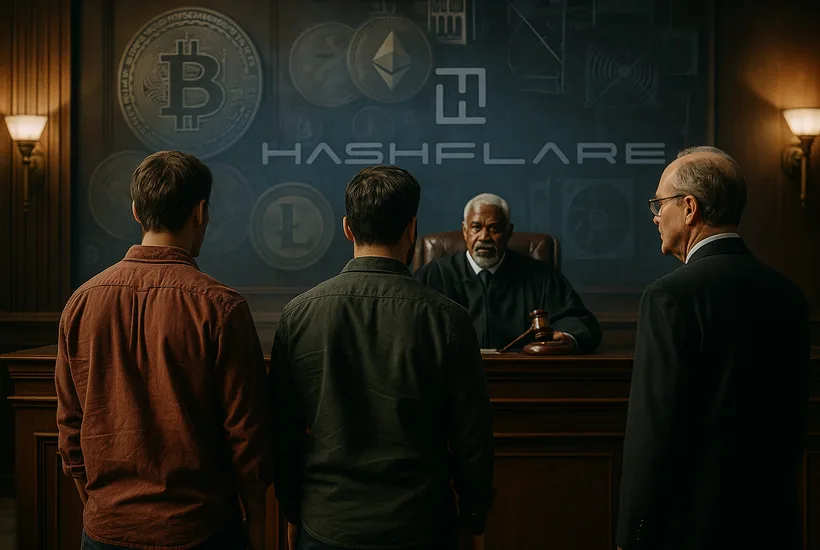The high-profile court case, involving the co-founders of HashFlare, has ended with a ‘time served’ sentence. Sergei Potapenko and Ivan Turõgin were accused of conspiring in a massive $577 million crypto Ponzi scheme. They were arrested in Estonia in November 2022 and extradited to the US in May 2024.
The HashFlare executives will not face further incarceration as they have served prison time for the past 16 months in pre-trial detention. During Tuesday’s sentencing in Seattle, U.S. District Judge Robert Lasnik imposed no further prison time but ordered each defendant to pay a $25,000 fine. Additionally, they have been asked to perform 360 hours of community service while on supervised release in Estonia.
The Department of Justice has said that it may appeal the sentence, having initially sought 10 years behind bars for their involvement. The duo was accused of selling fake cryptocurrency-mining contracts to 440,000 customers between 2015 and 2019. HashFlare presented falsified dashboard data and paid early investors with money obtained from newer investors, in a typical Ponzi structure.
As part of a plea agreement, the founders forfeited more than $400 million to address victim compensation efforts back in February. One of the reasons for showing leniency was the fact that 390,000 customers were able to withdraw approximately $2.3 billion, even after investing just $487 million. This indicated that not all participants suffered significant financial losses.
Prosecutors argued that this was one of the biggest fraud cases ever seen in the U.S. court system, stressing how large and complicated the scheme was. The light sentence, however, has sparked debate online with netizens raising concerns about deterrence amid rising digital-asset frauds.



